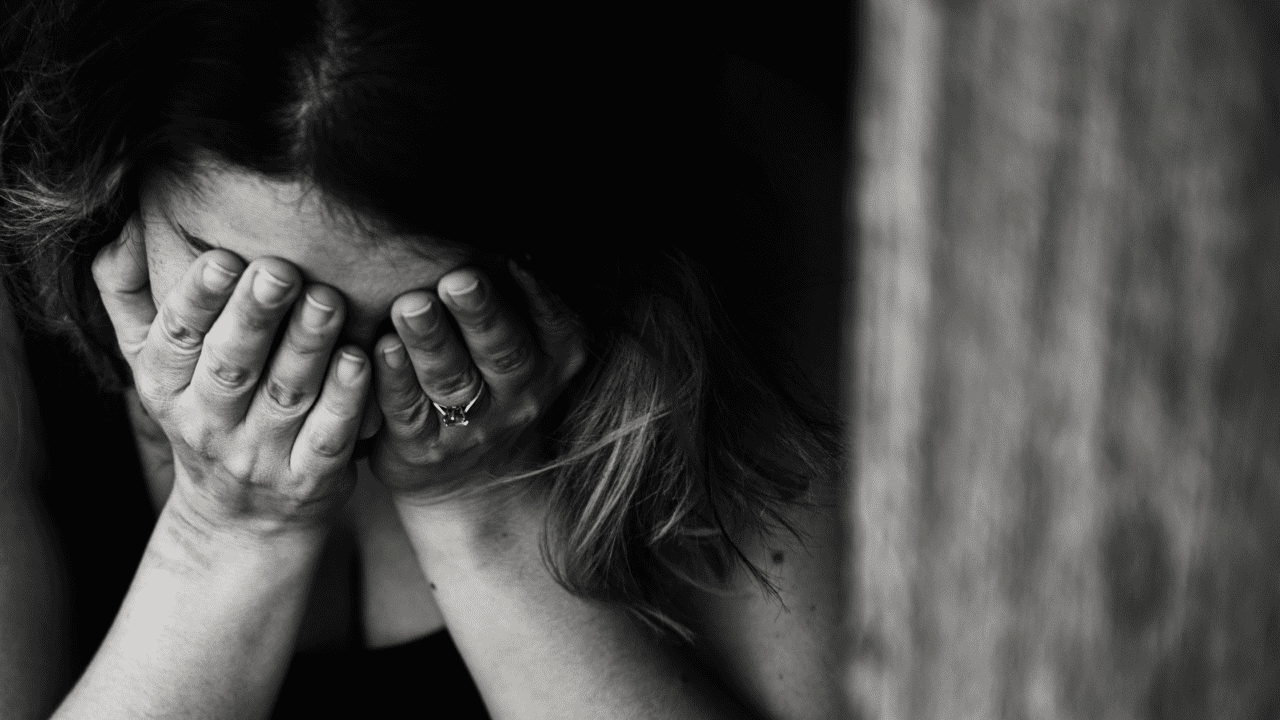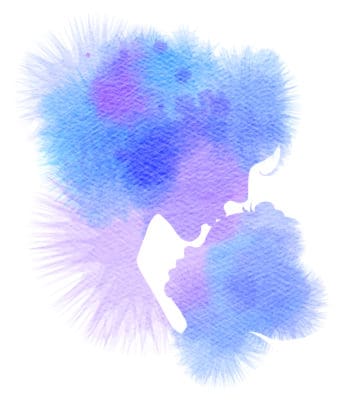Medical Editor: Dr. Benjamin Malcolm, PharmD, MPH, BCPP
Ibogaine is substance with deep roots in African tribal ceremonies and recognized for treating addiction or opioid use disorder. Ibogaine presents a compelling case for its potential application in treating depression. This exploration details Ibogaine’s therapeutic possibilities, specifically around treating depression.
What Is Ibogaine?
Ibogaine is an alkaloid primarily derived from the root bark of the African Tabernanthe iboga shrub, though also found in other plant species (e.g. voacanga). Classified as both a psychedelic and a hallucinogen, Ibogaine is unique for its oneiric qualities, inducing states akin to lucid dreaming. Unlike classical psychedelics like magic mushrooms, psilocybin or MDMA that work primarily on serotonin, Ibogaine primarily affects opioid, glutamate, and dopamine neurotransmitters. Ibogaine is long-acting and is metabolized to another compound, noribogaine, that has an even longer duration of action.
Can Ibogaine Treat Depression?
Current research into Ibogaine’s direct impact on depression is still evolving. Ibogaine’s known anti-addictive properties suggest a potential indirect benefit for depressive symptoms, particularly in cases where depression coexists with substance abuse disorders. Ibogaine’s promotion of neurogenesis and neuroplasticity, impacting neurotrophic factors such as GDNF (Glial cell line-Derived Neurotrophic Factor) and BDNF (Brain-Derived Neurotrophic Factor), may play a role in alleviating symptoms like anhedonia.
How Ibogaine Treats Depression
Ibogaine’s potential in treating depression is an area of growing interest, although it’s important to note that research in this field is still in its early stages. Still, it stands to reason that if ibogaine can effectively help a person recover from heavy addictions to substances like heroin and cocaine, that person’s mood could significantly improve as a result. Similarly, if ibogaine can eliminate withdrawal symptoms, it may plausibly help post-acute withdrawal symptoms such as depression.
The mechanism by which Ibogaine may help treat depression is multifaceted and involves several aspects of brain function and psychology:
Provides Neurochemical Effects
Ibogaine affects various neurotransmitter systems in the brain, including those involving dopamine, serotonin, and opioid receptors. By modulating these systems, Ibogaine may help rebalance the neurochemical factors that contribute to depression.
Promotes Neuroplasticity
Ibogaine is believed to promote neuroplasticity—the brain’s ability to reorganize and form new neural connections. This can be crucial in the treatment of depression, as it may help the brain ‘rewire’ itself away from depressive patterns and towards more positive, healthy cognitive and emotional processing.
Psychological Insights Regarding Personal Depression Experiences
During the Ibogaine experience, individuals often report intense introspective and visionary states. These can lead to profound personal insights and emotional catharsis, which can be therapeutic for those suffering from depression, especially when processed in a supportive therapeutic setting.
Helps Address Root Causes of Depression
In cases where depression is linked to substance abuse or traumatic experiences, Ibogaine’s ability to facilitate deep psychological introspection may help users confront and process underlying issues, potentially alleviating depressive symptoms.
Reduces of Withdrawal Symptoms
For individuals whose depression is connected to substance abuse, Ibogaine’s anti-addictive properties and its ability to alleviate withdrawal symptoms can be beneficial. By helping individuals overcome addiction, it may indirectly improve mood and reduce depressive symptoms.
Impacts Neurotrophic Factors
Ibogaine influences the levels of neurotrophic factors like GDNF and BDNF, which play a role in the survival and growth of neurons. This action might contribute to its potential antidepressant effects.
It’s important to approach the use of Ibogaine for depression with caution due to its powerful psychoactive effects and potential health risks, including cardiovascular issues. Currently, Ibogaine therapy for depression should only be considered under strict medical supervision, ideally as part of a comprehensive treatment plan that includes psychotherapy and other holistic integrative approaches. More research is needed to fully understand the efficacy and safety of Ibogaine as a treatment for depression.
What Can I Expect From Ibogaine When Taken for Depression?
An Ibogaine experience, particularly when utilized for treating depression, is profound and multifaceted, typically spanning 12-18 hours and unfolding in three distinct phases:
Visionary Phase
This phase usually begins 1-3 hours after Ibogaine intake and is characterized by vivid hallucinations and a dreamlike state, lasting approximately 4-8 hours, though it can extend longer for some individuals. During this phase, those seeking relief from depression often encounter deeply symbolic and introspective experiences. These hallucinations can manifest as visual representations of personal memories, emotions, or abstract concepts tied to their depressive thoughts and feelings. It’s a time of heightened emotional awareness where the subconscious mind can reveal insights related to the roots of their depression.
Introspection Phase
Starting around 4-8 hours post-consumption, the introspection phase is less about vivid hallucinations and more centered on deep inner dialogue and the processing of trauma and emotional pain. This phase can last anywhere from 8 to 20 hours. For individuals grappling with depression, this is often where significant emotional work occurs. It’s a period of reflection, understanding, and confronting the internal struggles and traumas that may contribute to their depressive state. This phase can be intense as it often involves facing and working through painful memories and emotions, but it also holds the potential for profound healing and resolution. Some people report they are able to process the revelations they experienced in the visionary stage and others describe life-changing epiphanies.
Residual Stimulation Phase
Beginning 12-24 hours after taking Ibogaine, this phase is about integration and can last from 24 to 72 hours or more. During this time, individuals start to process and assimilate the insights and revelations from the earlier phases. It’s common to experience a range of emotions during this phase, from confusion and contemplation to clarity and enlightenment. The initial part of this phase is sometimes referred to as a ‘gray day,’ characterized by introspection and emotional processing. It’s followed by what’s often described as an ‘ibogaine glow,’ where individuals may begin to feel a renewed sense of hope, understanding, and a more positive outlook towards life. This is a crucial time for reflection and planning on how to implement the insights gained into daily life, potentially leading to long-term improvements in managing depression.
It’s important to remember that the Ibogaine experience can be intense and emotionally challenging, especially for those dealing with depression. The process often brings to the surface unresolved issues and emotions, which can be difficult but also therapeutic to confront and process. As with any treatment for depression, it’s recommended to undergo Ibogaine therapy under the supervision of experienced medical professionals and in conjunction with ongoing mental health support. Additionally, implementing a comprehensive and holistic integration approach that nurtures the body, mind, soul, and spirit is recommended.
While this acts as a loose guide to the ibogaine experience, it varies from individual to individual.
Though ibogaine shows tremendous potential in addiction medicine, due to the intensity and duration of the experience, potential adverse effects, and access limitations, it’s worth looking into other psychedelics such as ketamine- or psilocybin-assisted therapies for depression first.
History of Using Ibogaine for Depression
French explorers noticed and set their eye on the practice of using iboga root bark in tribal ceremonies in the 19th century, in particular, the naval physician Gabon Marie-Théophile Griffon du Bellay. The psychedelic made it’s way back to France, where it was first isolated from T. iboga in 1901 using T. iboga samples from Gabon. It was sold in France as Lambarène, as a stimulant and a mental and physical performance enhancement drug, during the 1930s to 1960s, and even taken by World War II athletes before it became illegal in 1966.
In the United States, ibogaine was first lauded for its anti-addictive properties in 1962 by Howard Lotsof, when he broke his heroin addiction with a single dose. He went on to found the Global Ibogaine Therapy Alliance (GITA) and patented ibogaine as an ‘interrupter of narcotic addiction’.
Safety Considerations
Due to potential cardiovascular risks, Ibogaine treatment should only be undertaken under strict medical supervision. Pre-treatment medical screenings are crucial, and certain medications, including hard substances, some antidepressants and over-the-counter drugs, should be avoided. Remember, Ibogaine comes with real health risks and should only be taken under supervision of a professional with monitoring and emergency medical support available.
Frequently Asked Questions About Ibogaine for Depression
How does Ibogaine relieve depression?
Ibogaine may indirectly alleviate depression by its anti-addictive properties and through promoting brain neuroplasticity, potentially improving mood and emotional regulation.
Can Ibogaine be used for manic depression (bipolar disorder)?
Using Ibogaine for bipolar disorder requires careful medical consideration due to its intense psychoactive nature and potential health risks. Professional medical advice is critical.
Is microdosing Ibogaine effective for depression?
While there is growing interest in microdosing Ibogaine for depression, scientific evidence remains limited. Anecdotal reports suggest mood and cognitive benefits, but professional guidance is advised.
What are alternative psychedelic therapies for depression?
Alternatives to Ibogaine for treating depression include ketamine and psilocybin-assisted therapies, which are generally better researched and carry fewer medical risks.
Learn More About Ibogaine
Want to learn more about the potential of Ibogaine? Start here.







